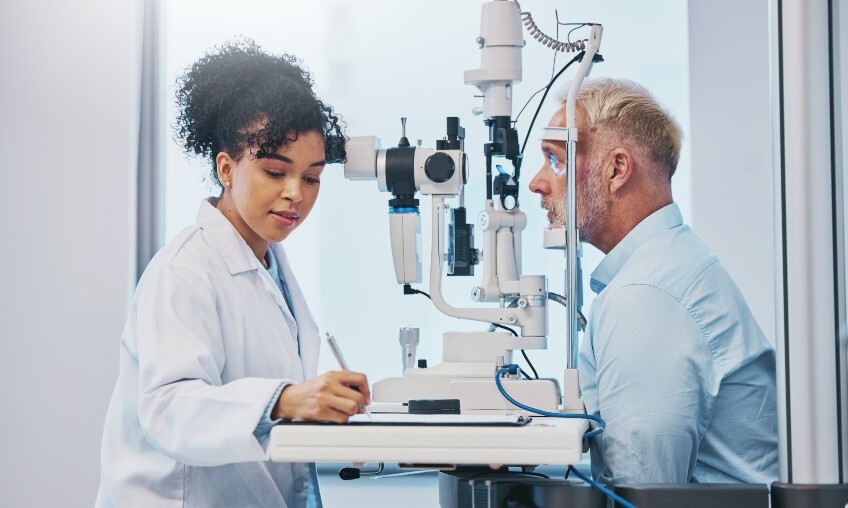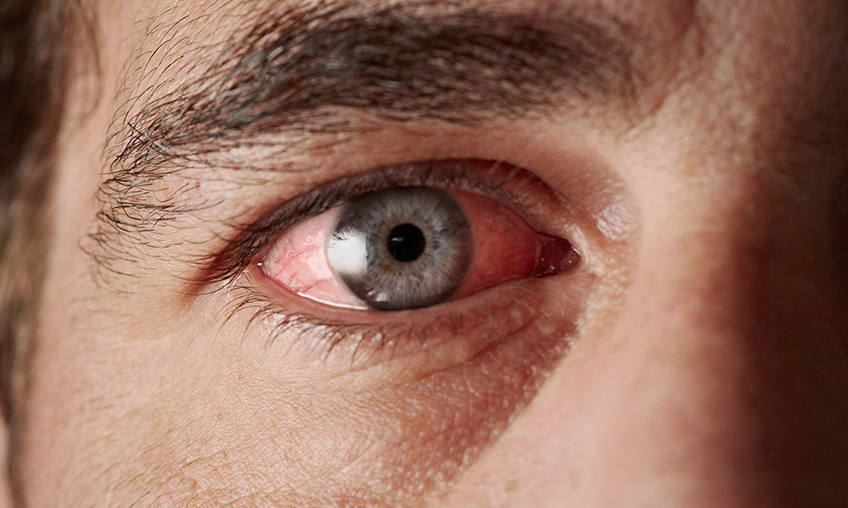
By John-Michael Cummings, OD
If your eyes are red, swollen, tearing, burning or sensitive to light, you may have allergic conjunctivitis - also called eye allergies.
Allergic conjunctivitis is the uncomfortable response after your eyes contact something that is usually harmless. These harmless elements usually float in the air (indoors and outdoors) and are called allergens.
When you have eye allergies, allergens trigger the tissue around your eyes to release substances, including histamines. Histamines are message-carrying molecules inside your body. But sometimes, they overreact. Their overreaction to allergens makes your eyes swollen, red, itchy and/or watery.
There are two kinds of eye allergies, according to Johns Hopkins Medicine.
- Seasonal allergic conjunctivitis usually takes place in the spring and summer, and sometimes during the fall. Triggers include pollen, grass and other allergens that float in the air.
- Perennial allergic conjunctivitis can happen any time you encounter allergens such as animal dander, dust, mold, perfume/scent, smoke, certain foods or medicine, and sometimes even an insect bite or sting.
People with eye allergies usually also suffer with nasal allergies at the same time. Signs of nasal allergies include an itchy, stuffy nose, sneezing or a runny nose.
Allergic conjunctivitis is common. Almost 40% of people in the U.S. have eye allergies, according to a study available from the National Library of Medicine - and don’t get help for it.
But that doesn’t have to be true for you.
Almost 40% of people in the U.S. have eye allergies and don’t get help for it.
Care for Eye Allergies
When you see your EyeQuest provider, they will talk to you about your health history and your family’s history of allergies. They can check the surface of your eye with special equipment and might perform other tests if you have extreme symptoms.
Your eye doctor may recommend allergic conjunctivitis treatments such as artificial tears; decongestants (with or without antihistamines); oral antihistamines; antihistamine/mast-cell stabilizer drops; steroid eye drops; or immunotherapy injection. One or more of these can help relieve symptoms. But the key to feeling better is to avoid or limit contact with what bothers your eyes.
Here’s advice on keeping away from allergens from the American Academy of Ophthalmology:
- Pollen: Do not go outside mid-morning and early evening in the spring, summer or fall. Stay indoors when it is windy. If you must go outside, wear sunglasses or eyeglasses. Keep home and vehicle windows closed and use air conditioning to lower contact with pollen and other irritants. Don’t use window fans, because they draw the allergens from the outside into your home or workplace. Keep air conditioners clean.
- Mold: Clean high-humidity areas like basements, bathrooms and kitchens often. If you can, run a dehumidifier in humid or moist places such as cellars or basements.
- Dust: Use allergen-reducing covers for mattress and pillows. Wash your bedding frequently with hot water (at least 130 degrees Fahrenheit). Clean floors with a damp mop or rag..
- Pets: Avoid touching pets and keep them out of your bedroom. Keep bare wood or tile floors if you can because carpet traps pet dander. Always wash your hands after touching a pet, and wash clothing that you have worn around pets.
Finally, no matter what you’re allergic to - never rub your eyes. It will only make you feel worse in the long run!
More than a million members trust their care to EyeQuest, part of Sun Life U.S. Find a provider near you to help keep your eyes healthy.
 Preventistry Pulse Image
Preventistry Pulse Image
PREVENTISTRY PULSE
The newsletter designed for anyone who wants to improve oral health for themselves, their families, customers or communities.





